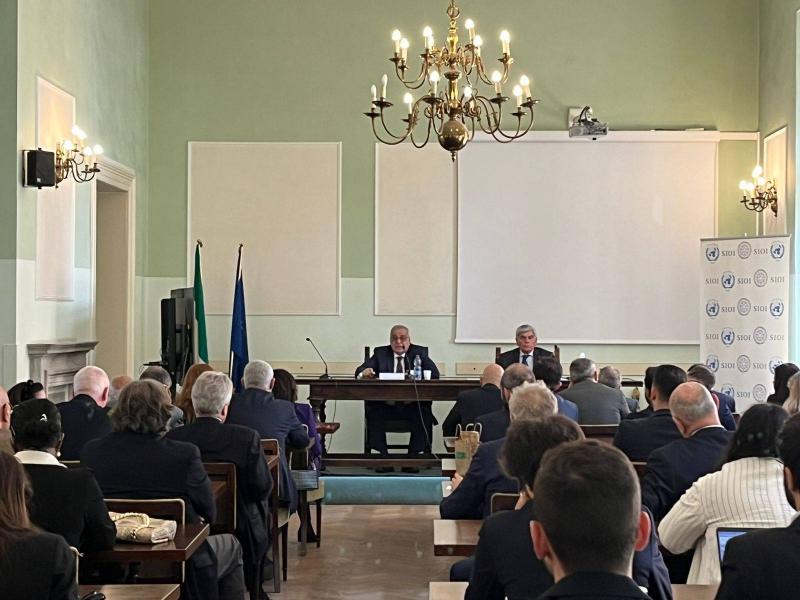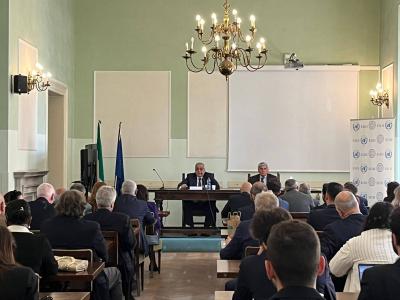Lebanese Foreign Minister Abdallah Bou Habib, during his visit to Italy and participation in dialogue sessions, pointed out that "the Syrians in Lebanon do not qualify as political refugees as most of them are in Lebanon for economic reasons." He confirmed that "there are about two million Syrians in Lebanon, and this number threatens the unique composition of the Lebanese entity, where there has always been a balance between Christians and Muslims, and equality where they feel that they are equal without any preference for one over the other."
Bou Habib called for "solving the refugee issue through dialogue with the Europeans, rather than through the attempts of some influential European countries to impose their indefinite stay in Lebanon." He noted that "so far, there is no clear roadmap to resolve their plight; they have been residing in Lebanon for 12 years awaiting a solution, which is what the Palestinians in Lebanon have been waiting for for more than 75 years now. However, the Palestinian refugees cannot return. The Syrian refugee is now considered an economic refugee, and the internal situation in Lebanon cannot bear that at all. The funds that are paid to support them in Lebanon should instead be given to them in Syria under the same conditions."
He revealed that he "spoke with Syrian President Bashar al-Assad and Foreign Minister Faisal al-Miqdad to reassure them about the safety of their return, noting that Syria has 40 laws to ensure that refugees (including opposers and defectors) are not punished in any way." He added that the Syrian side informed them of its readiness to cooperate with international organizations to ensure that returnees to Syria do not face any harassment or arbitrary prosecutions.
### Lebanese-European Relations
Bou Habib also addressed Lebanese-European relations and the importance of some Europeans reviewing their dealings with issues that touch the core of the Lebanese formula and Arab issues. He reminded of Lebanon's advanced stance on the war in Ukraine, the repercussions of geopolitical changes in the region, primarily the Saudi-Iranian agreement, Syria's return to the Arab League, the necessity of electing a president in Lebanon, and the formation of a government to start the necessary reforms for the regular functioning of constitutional institutions, as well as the financial and economic challenges that Lebanon is experiencing.




